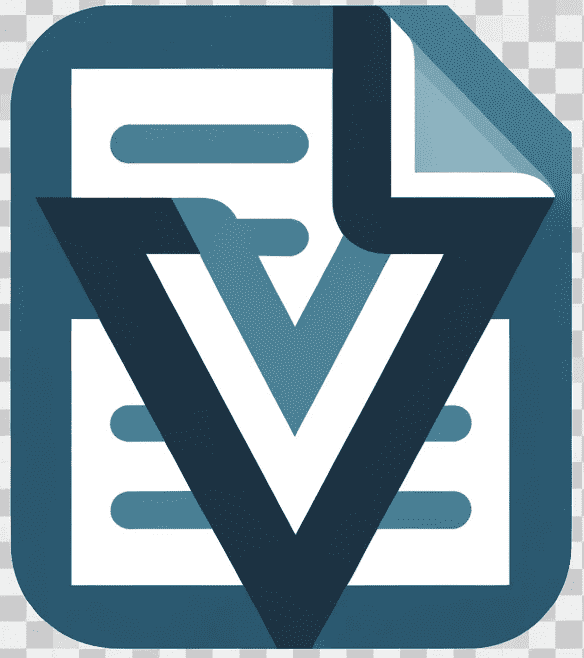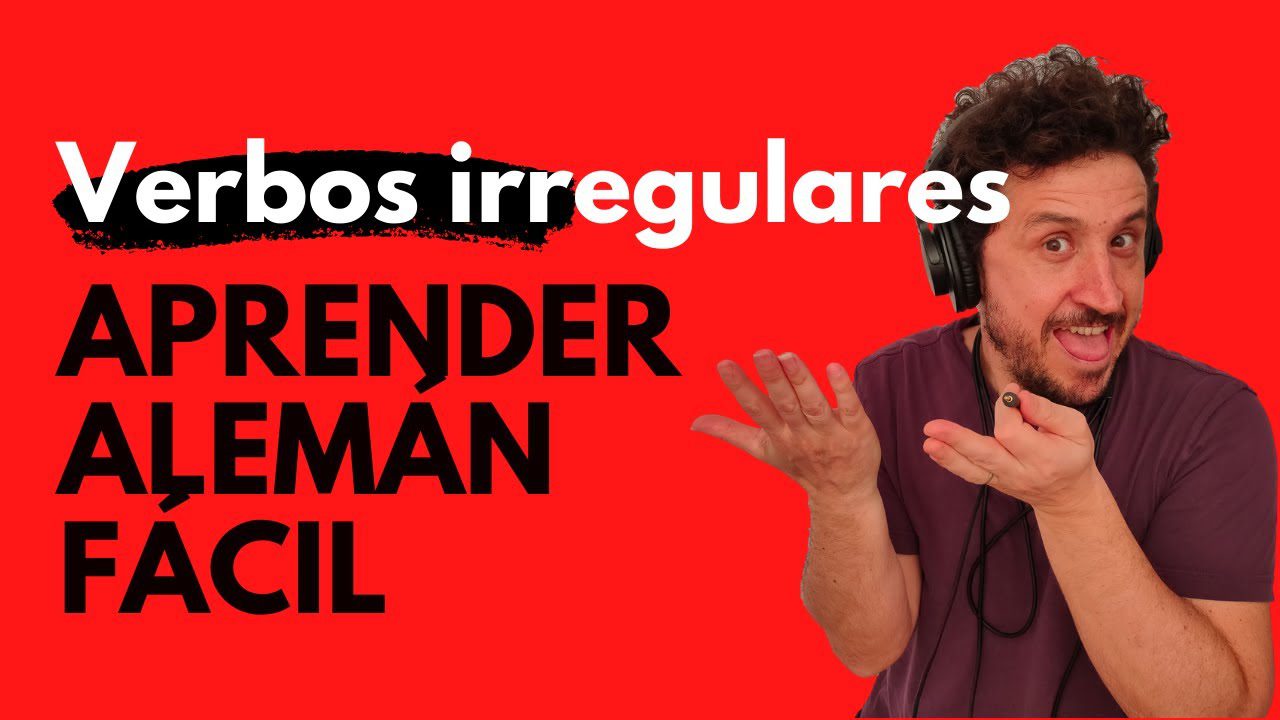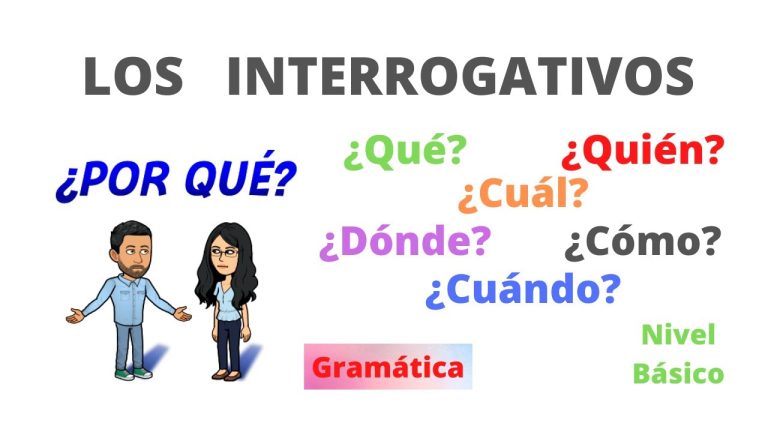Domina los verbos irregulares en alemán: tu guía completa para hablar con fluidez
Verbos Irregulares en Alemán: Todo lo que necesitas saber
¿Qué son los verbos irregulares en alemán?
Los verbos irregulares en alemán son aquellos que no siguen las reglas normales de conjugación. A diferencia de los verbos regulares, que se conjugan de manera predecible, los verbos irregulares tienen formas conjugadas que no siguen un patrón establecido. Esto puede hacer que aprender y recordar estos verbos sea un desafío para los estudiantes de alemán.
Ejemplos de verbos irregulares en alemán
Algunos ejemplos de verbos irregulares en alemán incluyen «haben» (tener), «sein» (ser/estar), «gehen» (ir), «kommen» (venir) y «wissen» (saber). Estos verbos tienen formas conjugadas únicas que no se ajustan a las reglas generales de conjugación.
Consejos para aprender los verbos irregulares en alemán
Para aprender los verbos irregulares en alemán, es importante practicarlos regularmente y memorizar las formas conjugadas. Una forma útil de hacerlo es crear tarjetas de memoria con el infinitivo del verbo en un lado y la forma conjugada en el otro. Repasar estas tarjetas de manera regular te ayudará a internalizar las formas correctas.
Además, es recomendable utilizar ejercicios interactivos y recursos en línea que se centren en los verbos irregulares. Estos pueden incluir actividades de conjugación o juegos que te desafíen a reconocer y conjugar los verbos correctos.
En resumen, los verbos irregulares en alemán son una parte importante del aprendizaje del idioma. Aunque pueden parecer complicados al principio, con práctica y dedicación, es posible dominar su conjugación y utilizarlos correctamente en diferentes contextos.
Irregular Verbs in German: Everything You Need to Know
When learning a new language, one of the biggest challenges is mastering the verb conjugations. In German, just like in English, there are irregular verbs that don’t follow the regular patterns. These verbs can be a bit tricky to memorize, but once you have a good understanding of them, your German conversations will become much smoother.
One of the most common irregular verbs in German is «sein,» which means «to be.» This verb has different forms depending on the subject, such as «ich bin» (I am), «du bist» (you are), and «er/sie/es ist» (he/she/it is). It’s important to practice conjugating this verb in different tenses and with different subjects to become comfortable with it.
Another irregular verb that often confuses German learners is «haben,» meaning «to have.» Unlike regular verbs, «haben» changes its stem from «h» to «ha» in the du, er/sie/es, and ihr forms. For example, «du hast» (you have), «er/sie/es hat» (he/she/it has), and «ihr habt» (you have). Paying attention to this stem change and practicing it regularly will help you remember this irregularity.
Lastly, it’s important to mention the irregular verb «sehen,» which means «to see.» In the present tense, «sehen» follows the regular conjugation pattern. However, in the past tense, it becomes irregular with forms such as «ich sah» (I saw), «du sahst» (you saw), and «er/sie/es sah» (he/she/it saw). Familiarize yourself with these irregular forms to be able to correctly express past actions in German.
Conjugación de los verbos irregulares en alemán
La conjugación de los verbos irregulares en alemán puede ser un desafío para los estudiantes de este idioma. A diferencia de los verbos regulares, que siguen un patrón predecible en su conjugación, los verbos irregulares tienen formas únicas que deben ser aprendidas de memoria.
Existen diferentes tipos de verbos irregulares en alemán, como los que presentan cambios en la raíz del verbo, cambios en las vocales o consonantes, e incluso cambios en la terminación. Algunos ejemplos comunes de verbos irregulares en alemán son «sein» (ser/estar), «haben» (tener) y «werden» (convertirse).
Para aprender la conjugación de los verbos irregulares en alemán, es importante familiarizarse con las diferentes formas verbales en presente, pasado y futuro. Además, se recomienda practicar regularmente a través de ejercicios de escritura y conversación para afianzar el conocimiento.
En resumen, la conjugación de los verbos irregulares en alemán requiere estudio y práctica constante. Aunque pueda parecer complicado al principio, con el tiempo y la dedicación adecuada, los estudiantes pueden dominar la conjugación de estos verbos y mejorar su fluidez en el idioma alemán.
Conjugation of Irregular Verbs in German
Regular vs. Irregular Verbs
In German, as in many other languages, verbs can be classified as either regular or irregular. Regular verbs follow a predictable pattern of conjugation, while irregular verbs have unique conjugation forms that do not follow a set pattern. Learning how to conjugate irregular verbs is an essential step in mastering the German language.
Common Patterns of Irregular Verbs
While there are numerous irregular verbs in German, they can often be grouped into specific patterns based on their conjugation changes. One common pattern is the vowel change within the verb stem. For example, the verb «sprechen» (to speak) changes its stem vowel from ‘e’ to ‘i’ in the present tense conjugations, such as «ich spreche» (I speak). Another common pattern is the addition of an umlaut, which is a change to the vowel sound, in the second and third person singular forms. For instance, the verb «sehen» (to see) becomes «du siehst» (you see) and «er/sie/es sieht» (he/she/it sees).
Notable Irregular Verbs
Although there are many irregular verbs in German, some of the most frequently used ones include «haben» (to have), «sein» (to be), and «werden» (to become). These verbs have irregular stem changes and unique conjugation forms in various tenses and moods. Understanding and memorizing the conjugation of these verbs is crucial for building a strong foundation in German grammar.
Overall, mastering the conjugation of irregular verbs is a necessary step in becoming proficient in German. Recognizing the patterns and studying the conjugation forms of these verbs will greatly enhance your ability to express yourself accurately in conversation and writing.
Lista de los verbos irregulares más comunes en alemán
En el idioma alemán, al igual que en otros idiomas, existen verbos irregulares que no siguen las reglas de conjugación estándar. Estos verbos presentan cambios en su raíz, en las terminaciones o en ambas, lo que los hace más difíciles de aprender. En esta lista, te presentaré algunos de los verbos irregulares más comunes en alemán.
1. «Sein» (ser/estar): Este verbo es muy importante en alemán y tiene una conjugación irregular. En presente, las formas son «bin» (soy/estoy), «bist» (eres/estás) y «ist» (es/está). En pasado, las formas son «war» (fui/estuve), «warst» (fuiste/estuviste) y «war» (fue/estuvo).
2. «Haben» (tener): Otro verbo fundamental en alemán con una conjugación irregular. En presente, las formas son «habe» (tengo), «hast» (tienes) y «hat» (tiene). En pasado, las formas son «hatte» (tuve), «hattest» (tuviste) y «hatte» (tuvo).
3. «Gehen» (ir): Este verbo también es irregular en su conjugación. En presente, las formas son «gehe» (voy), «gehst» (vas) y «geht» (va). En pasado, las formas son «ging» (fui), «gingst» (fuiste) y «ging» (fue).
4. «Machen» (hacer): Otro verbo común que tiene una conjugación irregular. En presente, las formas son «mache» (hago), «machst» (haces) y «macht» (hace). En pasado, las formas son «machte» (hice), «machtest» (hiciste) y «machte» (hizo).
Estos son solo algunos ejemplos de los verbos irregulares más comunes en alemán. Aprender estos verbos y practicar su conjugación es esencial para poder comunicarse de manera efectiva en dicho idioma. Recuerda que la práctica constante y el uso en contextos reales te ayudarán a familiarizarte con ellos y mejorar tus habilidades en alemán.
List of the Most Common Irregular Verbs in German
When learning a new language, it is essential to pay attention to irregular verbs. In German, just like in English, there are several verbs that do not follow the typical conjugation patterns. Knowing these irregular verbs is crucial for anyone looking to become fluent in German.
Here is a comprehensive list of the most common irregular verbs in German:
1. Sein (to be) – This verb is irregular in almost all of its forms. For example, the present tense forms are ich bin (I am), du bist (you are), and er/sie/es ist (he/she/it is). It is important to memorize the conjugation of this verb since it is used extensively in German.
2. Haben (to have) – Another important verb in German, haben also has irregular conjugation in its present tense. The forms include ich habe (I have), du hast (you have), and er/sie/es hat (he/she/it has).
3. Werden (to become) – This verb is not only irregular in its present tense conjugation but also has a different stem throughout its conjugation. The present tense forms include ich werde (I become), du wirst (you become), and er/sie/es wird (he/she/it becomes).
4. Können (can) – When used to express the ability to do something, können is irregular in its present tense conjugation. The forms include ich kann (I can), du kannst (you can), and er/sie/es kann (he/she/it can).
Learning and memorizing these irregular verbs will greatly improve your understanding and mastery of the German language. Practice using them in sentences and conversations to become more comfortable with their usage.
Ejemplos de verbos irregulares en alemán y cómo usarlos
Cuando se trata de aprender alemán, uno de los desafíos más comunes son los verbos irregulares. A diferencia de los verbos regulares, estos no siguen las reglas gramaticales estándar, lo que puede dificultar su uso y conjugación adecuada. En este artículo, exploraremos algunos ejemplos de verbos irregulares en alemán y cómo usarlos correctamente.
Un ejemplo común de un verbo irregular en alemán es «sein», que significa «ser» o «estar» en español. La conjugación de este verbo varía según el tiempo verbal y la persona gramatical. Por ejemplo, en presente, la primera persona del singular es «bin», la segunda persona es «bist» y la tercera persona es «ist».
Otro verbo irregular importante es «gehen», que significa «ir». A diferencia de los verbos regulares que añaden una «e» al final en el presente, «gehen» cambia completamente su raíz. Por ejemplo, en primera persona es «gehe», en segunda persona es «gehst» y en tercera persona es «geht».
El verbo «lesen» (leer) es otro ejemplo de un verbo irregular en alemán. Su conjugación también varía dependiendo del tiempo y la persona. Por ejemplo, en pasado, la primera persona del singular es «las», la segunda persona es «liest» y la tercera persona es «liest».
Estos son solo algunos ejemplos de verbos irregulares en alemán y cómo se utilizan. Aprender la conjugación adecuada de estos verbos puede ser desafiante, pero con práctica y dedicación, podrás dominarlos. Recuerda que la práctica constante es clave para mejorar tus habilidades en el idioma alemán.
Examples of Irregular Verbs in German and How to Use Them
German is known for its complex grammar, particularly when it comes to verb conjugation. While many verbs in German follow regular patterns, there are also a significant number of irregular verbs that learners must familiarize themselves with. In this blog post, we will explore some examples of irregular verbs in German and discuss how to use them correctly.
One common irregular verb in German is «sein,» which means «to be.» This verb is irregular in all tenses and must be memorized separately. For example, in the present tense, «ich bin» means «I am,» while «du bist» means «you are.» It is important to note that the verb «sein» is often used in compound tenses and frequently appears in everyday conversation, so mastering its conjugation is essential.
Another irregular verb worth mentioning is «haben,» which means «to have.» While it follows a regular conjugation pattern in the present tense, it becomes irregular in the past tense. For instance, «ich hatte» means «I had,» and «du hattest» means «you had.» This verb is commonly utilized in various contexts, such as expressing possession or indicating the past.
Furthermore, the verb «gehen» meaning «to go» is also irregular in its conjugation. In the present tense, «ich gehe» translates to «I go,» while «du gehst» means «you go.» This verb often appears in everyday conversations when discussing travel plans or daily activities, making it crucial to become comfortable with its irregular forms.
Learning irregular verbs in German can be challenging but is essential to master the language. By familiarizing yourself with verbs like «sein,» «haben,» and «gehen,» you will be better equipped to communicate accurately and fluently in various situations. Practice using these irregular verbs in different contexts to solidify your understanding and progress in your German language journey.
Consejos para aprender y memorizar los verbos irregulares en alemán
1. Organiza tus recursos
Una forma efectiva de aprender y memorizar los verbos irregulares en alemán es organizar tus recursos de estudio. Crea una lista o tabla con los verbos irregulares y sus diferentes formas conjugadas. Puedes utilizar colores o categorías para facilitar la visualización y clasificación de los verbos. Así podrás identificar patrones y similitudes entre ellos, lo que te ayudará a recordar sus formas.
2. Practica regularmente
La repetición es clave para aprender y memorizar los verbos irregulares en alemán. Dedica tiempo todos los días a practicar la conjugación de estos verbos. Puedes realizar ejercicios de escritura y pronunciación, crear tarjetas de memorización o utilizar aplicaciones y recursos en línea especializados en el aprendizaje de idiomas. La constancia y la práctica regular te permitirán adquirir fluidez y seguridad al utilizar los verbos irregulares en tus conversaciones en alemán.
3. Crea asociaciones y mnemotécnicas
Para facilitar la memorización de los verbos irregulares en alemán, puedes crear asociaciones y mnemotécnicas que te ayuden a recordar sus formas y significados. Por ejemplo, puedes asociar cada verbo con una imagen o una situación específica que te resulte fácil de recordar. También puedes utilizar rimas o canciones para memorizar los diferentes tiempos verbales. Estas técnicas te ayudarán a hacer la memorización más divertida y efectiva.
Tips for Learning and Memorizing Irregular Verbs in German
Understanding the Challenge
Learning and memorizing irregular verbs in any language can be a daunting task, and German is no exception. Unlike regular verbs that follow predictable patterns, irregular verbs have unique conjugation forms that need to be memorized individually. This challenge can often feel overwhelming, especially for beginners. However, with the right approach and some helpful tips, you can make the process more manageable.
Creating a Study Plan
One of the most effective strategies for learning and memorizing irregular verbs in German is to create a study plan. Break down the task into smaller, more manageable chunks and dedicate specific study sessions to focus on different verb groups. By organizing your learning in this way, you can avoid feeling overwhelmed and ensure a more systematic approach to memorization. Consistency and regular practice are key for long-term retention.
Utilizing Memory Techniques
To make the process of memorization more efficient, consider using memory techniques such as visualization or mnemonic devices. Visualization involves creating mental images that associate the verb with its meaning. For example, you can imagine a person «schwimmen» (to swim) across a river of water. Mnemonic devices, on the other hand, involve creating a phrase or acronym that helps you remember the verb forms. For instance, the acronym «SAGEN» can help you recall the conjugation of the verb «sagen» (to say): ich sage, du sagst, er/sie/es sagt, etc.
Practice and Immersion
Lastly, practice and immersion are crucial for mastering irregular verbs in German. Alongside studying from textbooks or online resources, engage in conversations with native German speakers or join language exchange programs. The more you expose yourself to the language, the more opportunities you’ll have to encounter and practice irregular verbs in real-life contexts. Additionally, watching movies, listening to podcasts, or reading books in German can help reinforce your learning and make the verbs stick in your memory.
By implementing a study plan, utilizing memory techniques, and immersing yourself in the language, you’ll be on your way to mastering irregular verbs in German. Remember, consistency and perseverance are the keys to success. Happy learning!
Contenido
- Verbos Irregulares en Alemán: Todo lo que necesitas saber
- Irregular Verbs in German: Everything You Need to Know
- Conjugación de los verbos irregulares en alemán
- Conjugation of Irregular Verbs in German
- Lista de los verbos irregulares más comunes en alemán
- List of the Most Common Irregular Verbs in German
- Ejemplos de verbos irregulares en alemán y cómo usarlos
- Examples of Irregular Verbs in German and How to Use Them
- Consejos para aprender y memorizar los verbos irregulares en alemán
- Tips for Learning and Memorizing Irregular Verbs in German







